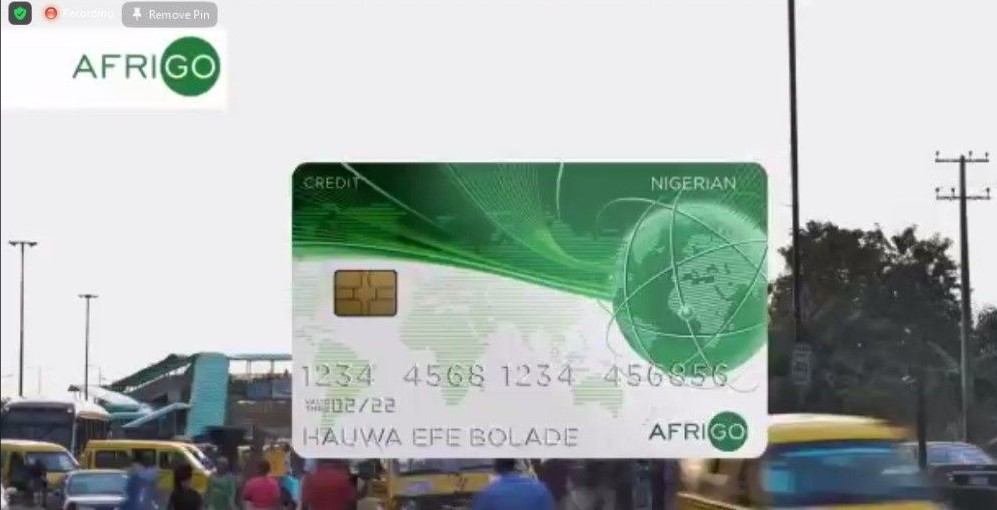AfriGo, Nigeria’s first national payment card, has been unveiled by the Central Bank of Nigeria (CBN) and the Nigeria Inter-Bank Settlement Systems (NIBSS).
Remember that the CBN declared in October 2022 that a national domestic card scheme would be unveiled on January 16, 2023. It said the scheme would be launched through the Nigeria Inter-Bank Settlement Systems (NIBSS) in partnership with the Bankers Committee, adding that it would accelerate financial inclusion and deliver lower-cost payments services that are more accessible and affordable for Nigerians.
Must Read: Airtel Introduces eSIM in Nigeria
The card, which will function similarly to existing international payment cards, is intended to increase financial inclusion in the country while reducing dependence on foreign cards.

The CBN Governor, Godwin Emefiele, stated during the unveiling at a virtual event on Thursday that the card was developed to adapt to local peculiarities that existing card products had failed to cater to.
He claims that with the AfriGo card, Nigeria has joined countries such as China, Russia, Turkey, and India in having native cards. He stated that the operations of the local cards will not prevent the usage of the existing foreign cards but will instead present Nigerians with more options.
Must Read: Google Translate Rolls Out 33 New Offline Languages
Emefiele also stated that the introduction of AfriGo was not intended to prevent foreign investors from entering the Nigerian payments industry but rather that it had become necessary due to its clear benefits.
The apex bank emphasized the benefits of the National card. According to the governor, the card gives an opportunity to incorporate the economy’s informal sector into the financial system. He also stated that this would cut the cost of card creation for Nigerian banks and the requirement for forex to acquire international cards.
Nigeria’s National Domestic Card Scheme (NIBSS) has been launched in Abuja. NIBSS Chairman Aisha Ahmad says the scheme will improve transaction security, reduce demand for FX, and put less pressure on the Naira. She added that it would also boost financial inclusion and value retention.



